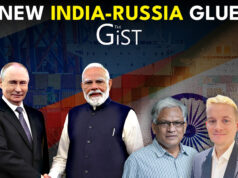She dismissed allegations that Israeli Prime Minister Benjamin Netanyahu prolonged the war for political survival. “This was not a political maneuver,” she said. “Israel was attacked and had to restore national security on all fronts — in Gaza, Lebanon, Syria, Iraq, and Yemen — amid Iranian-backed aggression.”
On the question of a two-state solution, Slama emphasized that any future political arrangement must begin with internal Palestinian reforms. “The Palestinian Authority is often seen as moderate, but it too supports terrorist activities. Reforms in Gaza and the West Bank are essential before any new framework can emerge,” she said.
Reconstruction of Gaza, she added, will likely involve “the U.S., European countries, and pragmatic Arab and Muslim states such as Saudi Arabia, Qatar, and the Gulf nations.” Slama warned, however, that Hamas remains active and is “trying to regain control by arresting, torturing, and executing opposition elements.”
Despite the challenges, she remains cautiously optimistic. “Hope and faith are vital in Judaism,” Slama said. “If this peace holds, it could pave the way for stability and prosperity across West Asia.”
In a career spanning three decades and counting, Ramananda (Ram to his friends) has been the foreign editor of The Telegraph, Outlook Magazine and the New Indian Express. He helped set up rediff.com’s editorial operations in San Jose and New York, helmed sify.com, and was the founder editor of India.com.
His work has featured in national and international publications like the Al Jazeera Centre for Studies, Global Times and Ashahi Shimbun. But his one constant over all these years, he says, has been the attempt to understand rising India’s place in the world.
He can rustle up a mean salad, his oil-less pepper chicken is to die for, and all it takes is some beer and rhythm and blues to rock his soul.
Talk to him about foreign and strategic affairs, media, South Asia, China, and of course India.




